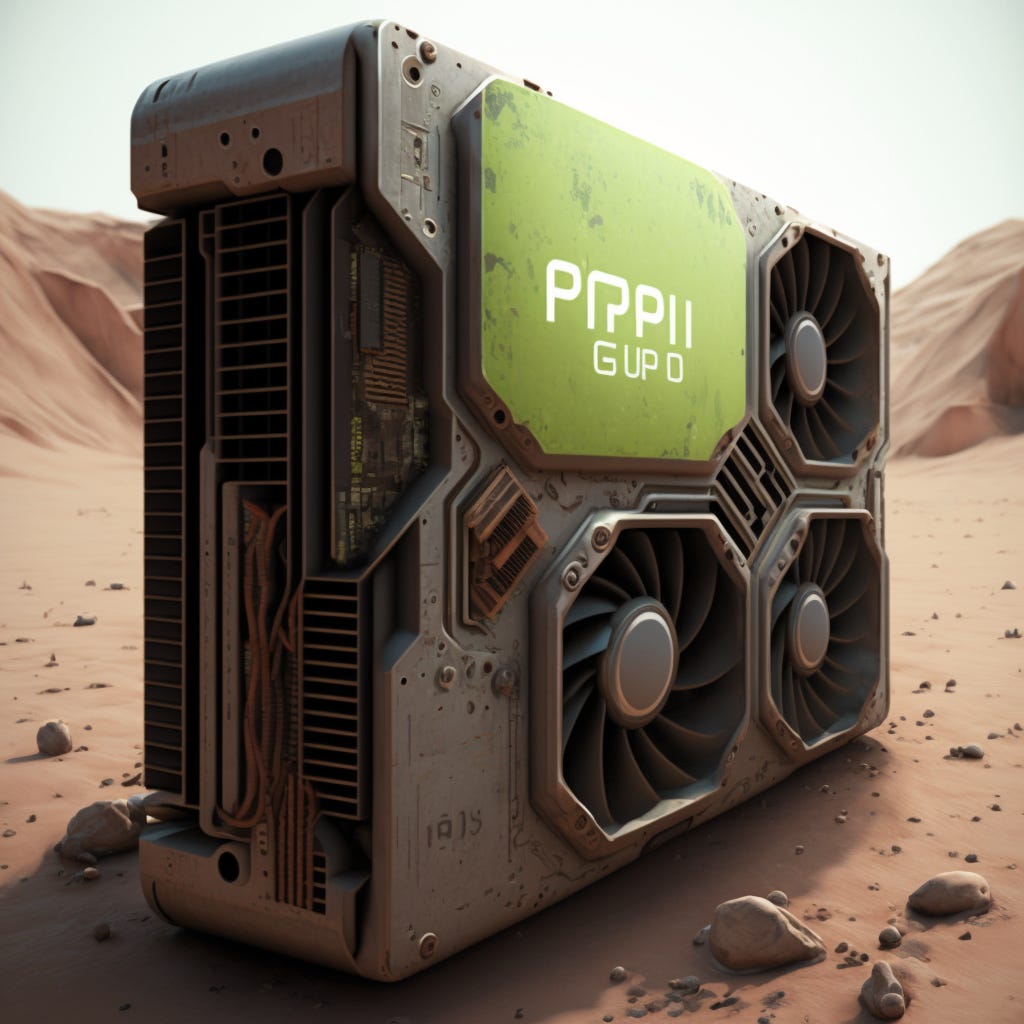I was playing with GPT-3 today, and I was thinking about how many programs it could replace or enhance - note programs, data processing programs, Word, Excel, computer search, IDEs, and so I was thinking that in the future, you might be able to buy "model cards" for your PC, similar to how we use GPUs today. These model cards would contain pre-loaded, large AI models that your computer's programs could use.
Imagine having access to state-of-the-art AI just by plugging in a model card. It could be much faster than connecting to the internet and having to call an API for the request, and it could thereby speed up all the programs on the PC that would probably require AI. It could also work offline, therefore meaning that you’d never have to think again! In addition, imagine plugging in large language model cards into your car - you could have your very own Kit from Nightrider, a companion AI in your car that keeps you company on long midnight drives. Or you could have Alexa for your PC finally live up to the hype and have it act and seem like a real person.
Now, the idea of model cards isn't new. In the world of machine learning, people often use pre-trained models as a starting point for their projects. These models are large, complex AI systems that have been trained on tons of data to do specific tasks, like image recognition or natural language processing.
By using pre-trained models, people can save time and resources that would otherwise be spent on training their own models from scratch. This is important because AI models are getting bigger and more complex, making it hard and expensive for people and small organizations to train their own models - it’ll reportedly cost something like $5 million to train GPT-3 on a Tesla V100. And these models are getting powerful enough that all programs will need to use them.
But pre-trained models have only been used in research and development environments, where people have access to powerful computing resources and the know-how to use them. For the average person, pre-trained models have been out of reach, usually hidden behind some API or web interface.
This is where model cards come in. By packaging pre-trained AI models into a plug-and-play format, anyone with a computer could easily access and use these systems. Just like how anyone can plug in a GPU to their computer and see a performance boost, model cards would make it easy for anyone to use pre-trained AI models.
It would make AI-enhanced programs much faster. Many programs today use already AI to do tasks, like suggesting responses in a messaging app or identifying objects in a photo, and there are as mentioned before so many more programs that could use AI. By plugging in a model card, these programs could access more powerful AI capabilities quicker, making them even more useful and efficient.
And of course, it would make creating your own AI projects easier, if the cards allow training and inference as well. By using a pre-trained AI model as a starting point, you could train your own model faster and better. This could be useful for tasks like image or speech recognition, where pre-trained models have already done well. This could open up the world of AI to a wider audience, empowering anyone to create their own AI-powered projects.
Of course, there are still challenges to overcome before model cards become a reality. For one, pre-trained AI models can be huge - GPT-3 clocks in at about 350 GB. There are also many technical and logistical challenges, like ensuring compatibility with different types of computers and programs.
But the potential benefits of model cards are huge, making them worth pursuing, and so my lab is working on overcoming those. The guys at Lawrence Livermore National Laboratory who we’re working with (they of the recent fusion fame) figured out a way to reduce the size of models by 90% while maintaining accuracy, and we’re working on building an efficient sparse neural network accelerator chip, which could potentially run large models in less than a second.
My dream is a future where a $20 card will be able to run Stable Diffusion, and these absurd AI capabilities would be spread throughout society. Efficient model cards, by making pre-trained AI models accessible to anyone with a computer, model cards could democratize the use of AI and open up new possibilities for individuals and organizations. In 2084, AI may be just a plug-and-play away.





